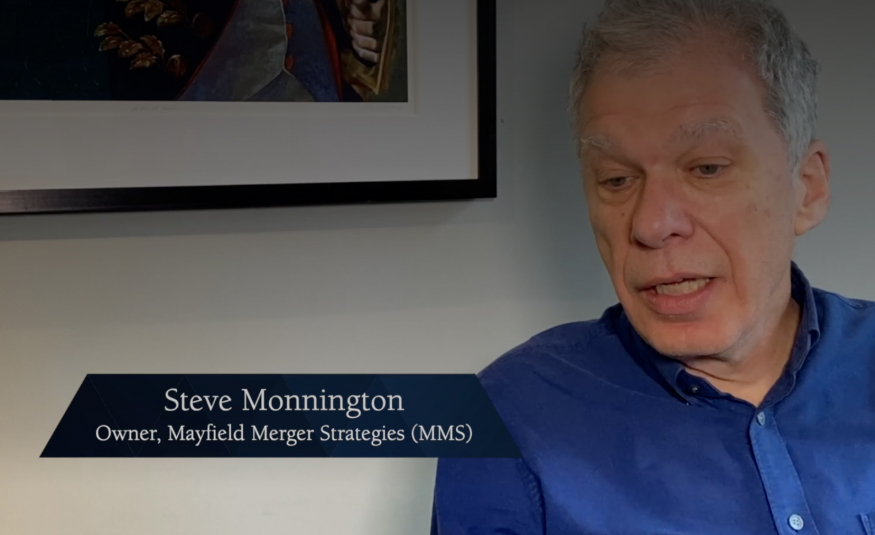In the wake of some big acquisitions in the exhibition sector, EW sent along The Iceberg’s James Latham to meet managing director of Mayfield Media Strategies and EW columnist, Steve Monnington, to delve deeper into the ramifications of the deals and the market trends they reflect. It seems it is all about ‘community’ and high quality data, while hybrid is almost gone. EW presents an exclusive report on that interview, which can be watched in full here.
In 2021 Steve Monnington says acquisitions in the exhibition industry dropped to half of the usual number, but as soon as visibility returned to events post Covid, a resurgence was evident. Of his own specialist boutique M&A company, Monnington says that from October 2021 to end of last year it transacted nine deals.
“We normally transact six a year. Some were businesses that had been put on hold, and some had been thinking of going to market but missed the boat when lockdown happened. It is symptomatic of two things: One, that exhibitions have bounced back far more quickly than people expected.” When comparing business, he says that now the name of the game is asking at what stage do you get back to 2019 revenues?
“We have seen a lot sectors where people in 2021 and certainly 2022 have surpassed 2019 revenues,” says Monnington, who believes, “exhibitions have shown their bouncebackabilty and therefore their resilience and the sectors themselves feel the need to get out their and supercharge their businesses, so attendances at shows has increased as has the number of exhibitors and, therefore, the profitability of the shows has increased.
“The backdrop to this is that private equity kept the faith with exhibition companies throughout and were open minded about supporting the businesses. If you talk to anyone at organiser CloserStill you will see that Providence [P.E. fund} were very supportive. There is no shortage of funding.”
Monnington goes on to explain the thinking behind the recent acquisition of Hyve Group by Providence Equity Partners and concludes going private was a sensible move, allowing the organiser the cash now to get back on the acquisition trail without looking to make more share issues.
That deal, Monnington believes, was “inevitable” and he sees Hyve becoming a bidder for other businesses down the line.
“Smaller publicly quoted companies can’t compete with Private Equity owned businesses when it comes to exhibitions,” says Monnington who believes M&A teams in these funds are not so hung up about whether a target is an exhibition, but are more interested what the quality of the data is and the level of activity with the relevant ‘community’. “It is about ownership of community and high quality data,” Monnington underlines.
As for Tarsus and Charterhouse, he unpicks this complex acquisition proposal from Informa and explains why there were no other suitors in the bidding process.
And, touching on event the, Monnington, in his video interview, says there was a brief flurry of activity in terms of what tech to use to create digital revenues during lockdown – out of necessity. “People had to earn money. Revenues were down and margins up because they didn’t have much cost. Everyone started talking about hybrid events, but it is gone for the vast majority of organisers, who have reverted back to where they were pre-pandemic The idea of having an event for people to use technology to attend that event remotely rather than coming to the hall has almost gone.”
James Latham’s full video interview with Steve Monnington – a partnership project with thanks to global association for the exhibition industry , UFI and The Iceberg, and support from EW sister publication EN – is a fascinating watch and you can access it here.
Look out also for the new edition of Exhibition World in April with Steve’s column and a cover story of the three big deals. www.exhibitionworld.co.uk





